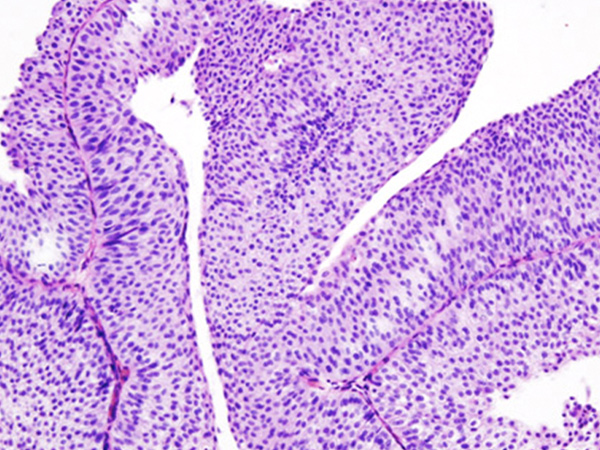Targeting the Most Common Form of Bladder Cancer
The FDA has approved a molecularly targeted therapeutic for patients with locally advanced or metastatic urothelial cancer.

The U.S. Food and Drug Administration (FDA) has approved a molecularly targeted therapeutic enfortumab vedotin-ejfv (Padcev) to treat certain patients with the most common form of bladder cancer, urothelial cancer.
Bladder cancer is the sixth most commonly diagnosed cancer in the United States, according to federal statistics. Urothelial carcinomas account for about 90 percent of the more than 80,000 new bladder cancer cases diagnosed each year in the United States. Urothelial carcinomas develop in the urothelium cells, which line the bladder.
Research, including a paper published in Cancer Research, a journal of the American Association for Cancer Research (AACR), has shown that up to 60 percent of bladder cancers are characterized by elevated levels of a protein called nectin-4. Moreover, research has found that enfortumab vedotin-ejfv, which targets the protein, causes tumor regression in preclinical models of bladder cancer.
The approval of enfortumab vedotin-ejfv is for treating adults who have locally advanced or metastatic urothelial cancer that has progressed despite treatment with an immune checkpoint inhibitor and a platinum-containing chemotherapy regimen. The approval was based on results from the phase II EV-201 clinical trial. The results showed that 44 percent of patients had complete or partial tumor shrinkage after treatment with enfortumab vedotin-ejfv.
Learn more about the December 19, 2019, approval of enfortumab vedotin-ejfv on Cancer Research Catalyst, the official blog of the AACR.
